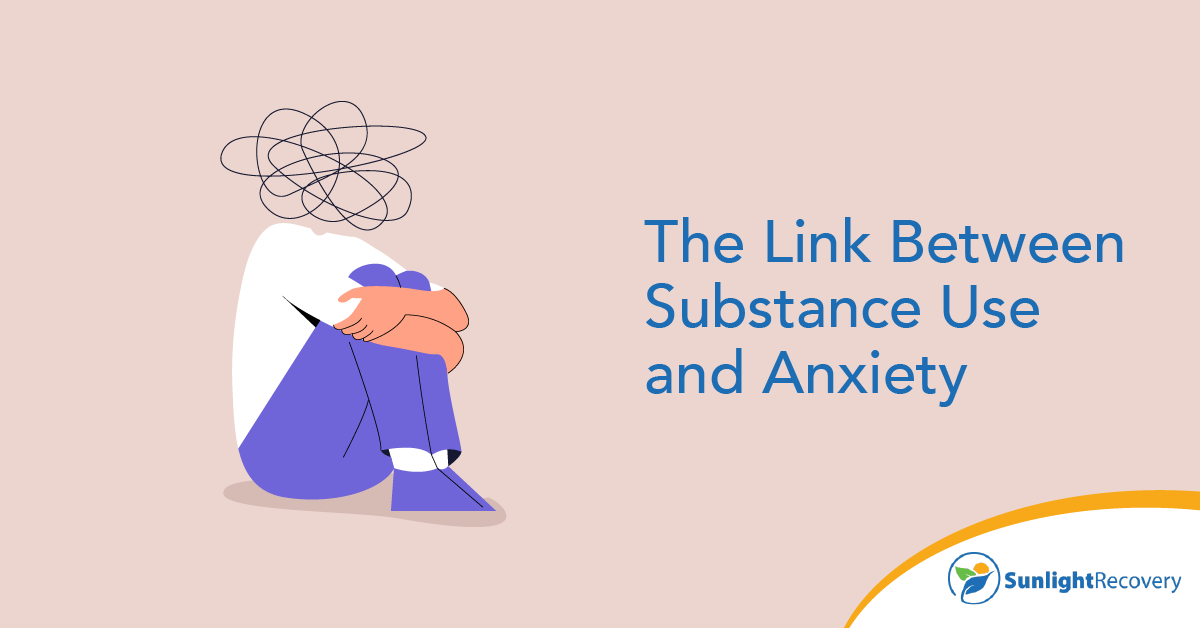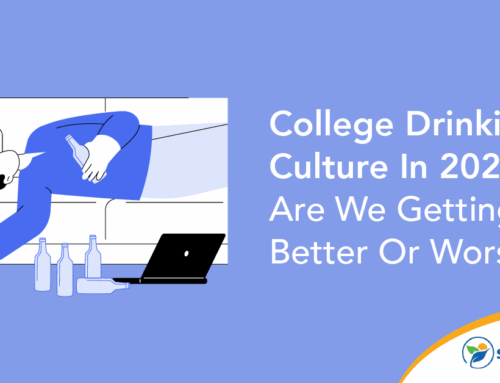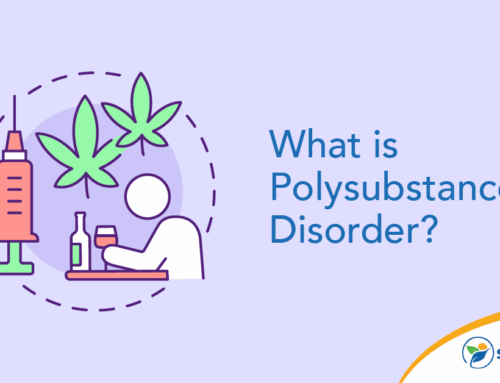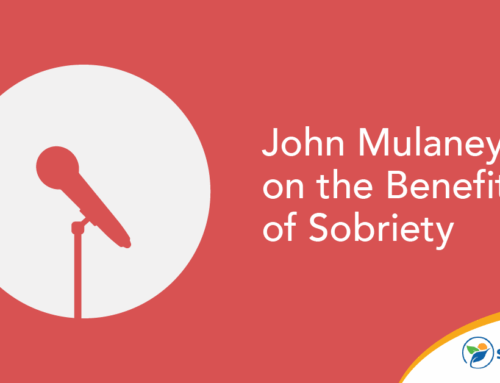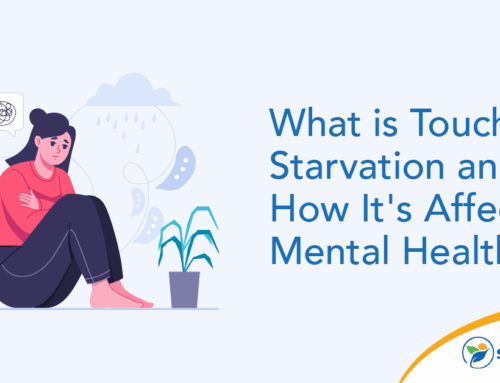Anxiety disorders affect approximately 40 million adults in the United States, making them among the most common mental health conditions nationwide. What many people don’t realize is the complex relationship between anxiety and substance use. For example, if you’ve experienced racing thoughts, persistent worry or panic attacks after drinking, you may be dealing with alcohol-induced anxiety. Many people unknowingly enter a dangerous cycle where substances temporarily relieve anxiety symptoms but ultimately make them worse. Understanding this connection is important for anyone struggling with anxiety and addiction or experiencing anxiety symptoms related to substance use.
How Substance Use Can Trigger or Worsen Anxiety
While you might turn to substances like alcohol to calm your nerves, the relationship between substances and anxiety is complicated. What begins as temporary relief often transforms into worsened anxiety over time. Research from the National Institute on Alcohol Abuse and Alcoholism shows that alcohol and other substances directly impact brain chemistry, disrupting the very neurotransmitters responsible for maintaining emotional balance.
Alcohol-induced anxiety typically manifests in two ways. The first occurs during intoxication or shortly after using substances, where changes in brain chemistry can trigger anxiety symptoms, even if you’ve never experienced them before. The second concern emerges during withdrawal, when your nervous system becomes hyperactive without them. This explains why you might feel increasing anxiety between periods of substance use or when attempting to cut back.
Long-term substance use can create enduring changes in your brain’s stress response systems. In fact, chronic substance use may permanently alter how your brain responds to stress, making you more susceptible to anxiety disorders even after achieving sobriety.
Common Substances Linked to Anxiety Symptoms
Different substances affect anxiety in various ways. Understanding how different substances impact your anxiety can help you make informed decisions about your health.
- Alcohol
Despite its reputation as a social lubricant, alcohol is one of the most common triggers for anxiety symptoms. The alcohol-induced anxiety phenomenon, sometimes called “hangxiety,” happens because alcohol first increases GABA, an inhibitory neurotransmitter, creating calm feelings. However, it then depletes it, leading to rebound anxiety when the effects wear off. - Caffeine
This widely consumed stimulant increases alertness by blocking adenosine receptors and promoting adrenaline release. For people predisposed to anxiety, even small amounts can trigger symptoms resembling panic attacks, including a racing heart, trembling and excessive worry. - Cannabis
While some people report that cannabis helps manage anxiety symptoms, research shows highly individualized responses. For many, particularly those using high-THC varieties, cannabis can trigger paranoia and acute anxiety episodes. Research has found that while low doses might temporarily reduce anxiety, higher doses frequently increase it. - Stimulants
Substances like cocaine, amphetamines and even prescription ADHD medications directly stimulate your central nervous system, mimicking anxiety’s physical symptoms. The crash period following stimulant use often includes intensified anxiety, creating a dangerous cycle of use and anxiety. - Benzodiazepines
Ironically, these medications prescribed to treat anxiety can worsen it in the long term. When used regularly, your body develops tolerance, requiring higher doses for the same effect, and dependency can develop quickly. Withdrawal from benzodiazepines is known to cause severe rebound anxiety and potentially dangerous physical symptoms.
The Cycle of Self-Medication and Anxiety
Self-medication creates one of the most challenging aspects of anxiety and substance abuse. This cycle typically begins when you discover that substances temporarily relieve uncomfortable anxiety symptoms. This relief, however, is short-lived and ultimately counterproductive.
As your body develops tolerance, you need increasing amounts of the substance to achieve the same anxiety-reducing effects. Meanwhile, the substance itself begins creating more anxiety through changes in brain chemistry and withdrawal symptoms. This creates a perfect storm. The increasing anxiety drives increased substance use, which in turn generates more anxiety.
Studies show that 15% to 20% of people with anxiety disorders also have a substance use disorder compared to the general population, largely due to self-medication behaviors.
The cycle becomes particularly dangerous because each component worsens the other. Your brain’s natural anxiety regulation mechanisms become compromised, making it increasingly difficult to manage anxiety without substances. Breaking this cycle typically requires addressing both conditions simultaneously rather than focusing on either issue in isolation.
Treatment Approaches for Co-Occurring Disorders
When anxiety and substance use disorders occur together, integrated treatment approaches show the greatest effectiveness. Traditional approaches that treat one condition before addressing the other have largely been replaced by comprehensive programs that recognize the interconnected nature of these disorders.
Effective treatment typically includes several key components:
- Medical detoxification. For many substances, supervised detoxification provides safe management of withdrawal symptoms, including the often severe anxiety that accompanies withdrawal.
- Medication-assisted treatment. Certain medications, like SSRIs, can help manage both conditions simultaneously.
- Cognitive behavioral therapy. CBT helps you identify triggers, develop healthier coping strategies and challenge the negative thought patterns that fuel anxiety and substance use.
- Trauma-informed care. Because trauma often underlies anxiety and substance use disorders, addressing unresolved trauma through approaches like eye movement desensitization and reprocessing (EMDR) or trauma-focused CBT can be important for recovery.
- Support groups. Specialized groups that address anxiety and addiction provide community support and reduce isolation.
- Holistic approaches. Techniques like mindfulness meditation, yoga and physical exercise have shown promising results in managing anxiety symptoms while supporting recovery from substance use disorders.
Building Healthier Coping Mechanisms for Alcohol-Induced Anxiety
Recovery involves more than just stopping substance use. It requires developing new ways to manage anxiety symptoms. Building a toolkit of healthy coping strategies provides alternatives to substances when anxiety strikes.
- Mindfulness practices. Learning to observe anxious thoughts without judgment through mindfulness meditation can reduce their power over your behavior.
- Physical exercise. Regular physical activity naturally reduces anxiety by releasing endorphins, improving sleep quality and reducing muscle tension.
- Healthy sleep habits: Establishing consistent sleep patterns supports brain chemistry balance and improves emotional regulation.
- Nutritional support. Proper nutrition helps stabilize mood and energy levels.
- Stress management techniques. Learning specific techniques like progressive muscle relaxation, deep breathing exercises and guided imagery provides immediate tools for managing acute anxiety symptoms.
- Social connection. Building supportive relationships and learning to communicate about emotions reduces isolation and provides healthy outlets for stress.
- Creative expression. Activities like journaling, art, music and dance offer emotional release and self-discovery without substances.
The most effective approach combines several coping strategies tailored to your specific triggers and preferences. Working with a therapist to identify which techniques work best for you can accelerate the development of your personal anxiety management toolkit.
Take the First Step Today
If you’re struggling with anxiety and substance abuse, you don’t have to face it alone. Sunlight Recovery offers specialized treatment programs designed to address alcohol-induced anxiety and co-occurring disorders. Our expert team provides compassionate, evidence-based care tailored to your unique needs. Take back control of your life by contacting us today to learn more about our programs.


